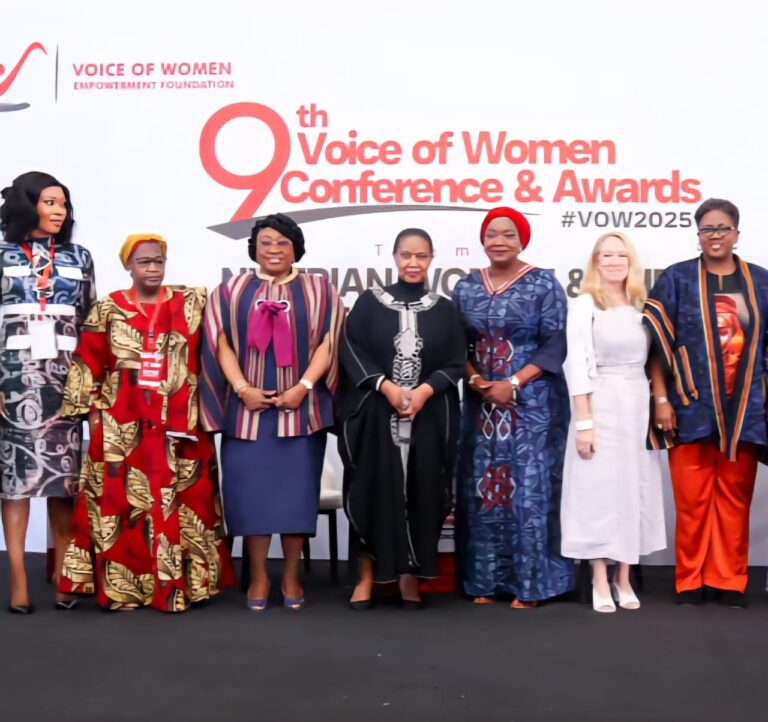By Adedoyin Oguntade
Women leaders and gender advocates have declared that Nigerian women are done with token representation and ready to wield collective power in reshaping the country’s political landscape ahead of the 2027 elections.
This was the resounding message at the 9th Voice of Women (VOW) Conference and Awards held in Abuja on 2 October, with the theme “Nigerian Women and the Power of Collective Action.”
Organised by the Voice of Women Empowerment Foundation, in partnership with Women Radio 91.7 FM, the annual conference brought together government officials, development partners, civil society groups, traditional rulers and grassroots women from across Nigeria, all united by one demand: that women’s inclusion in governance must move from rhetoric to reality.
ALSO READ: Reserved seat bill to take centre stage as women conference holds in Nigeria
As such, the reserved seats bill titled “Special Seats for Women Bill (House Bill 1349)” and sponsored by the Deputy Speaker of the House of Representatives, Benjamin Kalu took centre stage at the conference. The bill seeks to add a female senator to the existing three across the 36 states of the federation and the existing one in the National Assembly, amounting to an additional 37 slots.
Beyond symbolic recognition
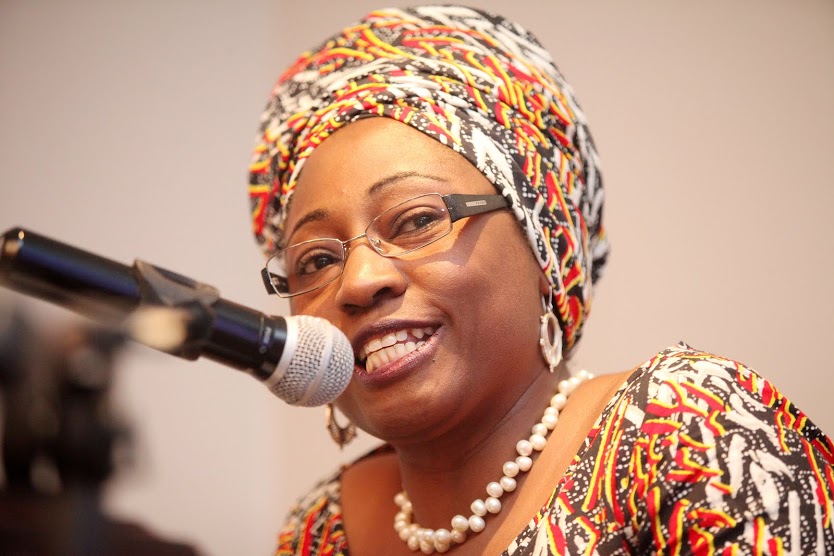
The Co-founder of the Amandla Institute for Policy and Leadership Advancement, Bisi Adeleye-Fayemi, the Erelu, warned that Nigeria risks undoing years of progress if political leaders fail to act decisively.
“The reserved seats bill currently before the National Assembly is an absolute necessity. Without it, Nigeria will remain stuck at 3.5 per cent women’s representation, which is embarrassing compared to other African countries,” Ms Adeleye-Fayemi said.
She urged Nigerian leaders to back words with political will, stressing that real inclusion must come from the highest levels of government.
“It is one thing to say we want a better world. It is another thing to be intentional. But if there is no political will from the President, the Vice President, and the leadership of the National Assembly, then all our aspirations will remain only on paper,” she said.
Nigeria must lead Africa’s march toward equity – Phumzile
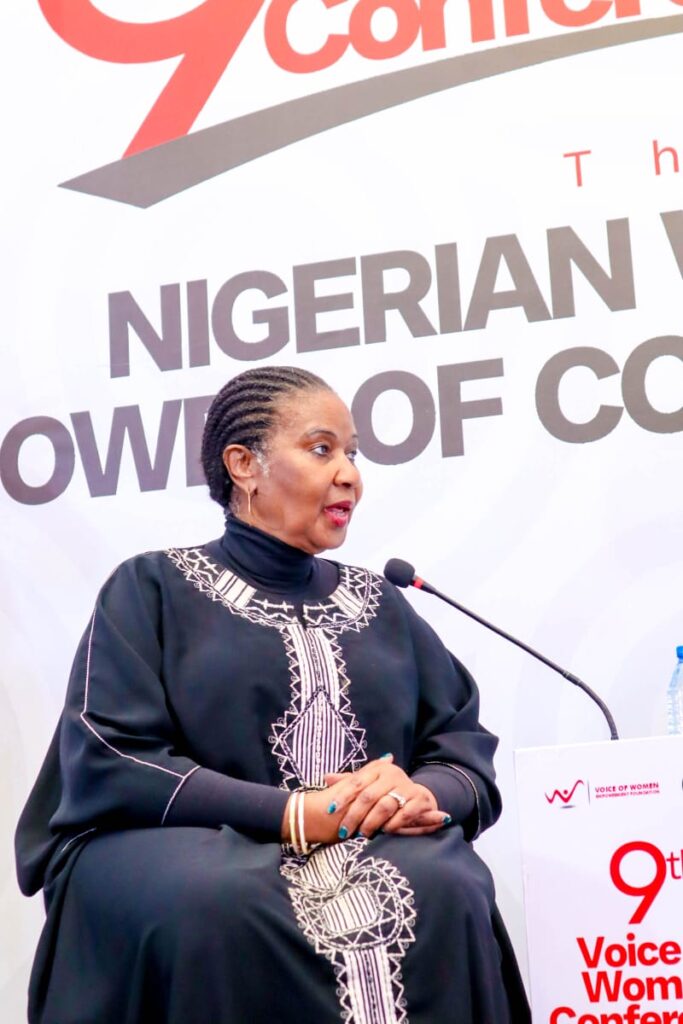
The former deputy president of South Africa, Phumzile Mlambo-Ngcuka in her address urged men to be active allies in women’s leadership.
She emphasised that the struggle for gender equality is not for women alone but a collective responsibility.
Also Read: “Attention!” African women take command roles in defence of their motherlands
“Africa cannot win its future without women, and women cannot lead without the active support of men who share the vision of an inclusive society. We need men in politics, business, religion, and communities to stand with us, not as bystanders, but as partners in progress. Nigeria has the potential to lead Africa into a future where equity is the norm, not the exception.”
She challenged Nigerian leaders to ensure that commitments made at conferences translate into measurable outcomes for women and girls, adding: “The world is watching Nigeria, and Nigeria must not lag behind.”
‘Women are the heartbeat of the nation’
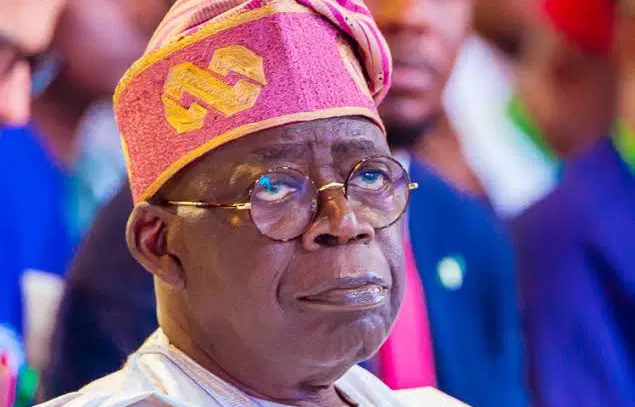
Nigeria’s president, Bola Tinubu, represented by the Minister of Women Affairs and Social Development, Imaam Sulaiman-Ibrahim, pledged his administration’s commitment to empowering women under the Renewed Hope Agenda.
Mr Tinubu in his goodwill message affirmed his administration’s commitment to empowering women as protectors of families, drivers of innovation, and catalysts of the one-trillion-dollar economy “we are building together.”
Mr Tinubu described VOW2025 as a song of unity, pride, and enduring hope for a more inclusive and prosperous Nigeria. “Our ever-supportive and resilient Nigerian women, your voices remain the heartbeat of our country; echoing, undaunted, unyielding, and rising to shape a future of equity and progress.”
The vice president, Kashim Shettima, who was also represented by Ms Sulaiman-Ibrahim, described women as the backbone of the country’s resilience, assuring that government policies would continue to unlock their potential as drivers of national growth.
‘Democracy without women is incomplete,’ says minister
In her keynote address, the women affairs’ minister, Ms Sulaiman-Ibrahim highlighted the historic contributions of Nigerian women from the Aba Women’s Protest of 1929 to their pivotal roles in the return to democracy in the 1990s.
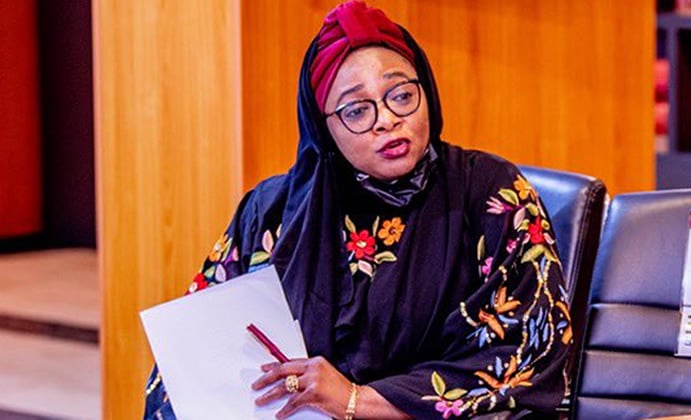
She decried Nigeria’s low level of female representation in governance, with less than five per cent of National Assembly seats currently held by women. A figure, she described as well below the African Union’s 50 per cent target and the global average of 26.5 per cent.
If the bill is passed, the Senate will have 146 members comprising 41 women (28.1 per cent) and 105 men (71.9 per cent). The House of Representatives will also have 397 members: 51 women (12.8 per cent) and 346 men (87.1 per cent).
In the State Houses of Assembly, there will be 1,101 members: 162 women (14.7 per cent) and 939 men (85.3 per cent). In total, there will be 254 women in the legislature.
“This is not an act of benevolence but an act of justice and strategic necessity. Democracy without women is incomplete. By granting spaces for women in governance, we align with global best practices, ensure a more inclusive democracy, and unlock the full potential of half of the Nigerian population currently left behind.
“The time has come for collective action, not piecemeal gestures or symbolic recognition. Quotas are not handouts, they are instruments of equity,” Ms Sulaiman-Ibrahim added.
Reserved seats bill, critical to Nigeria’s democratic integrity
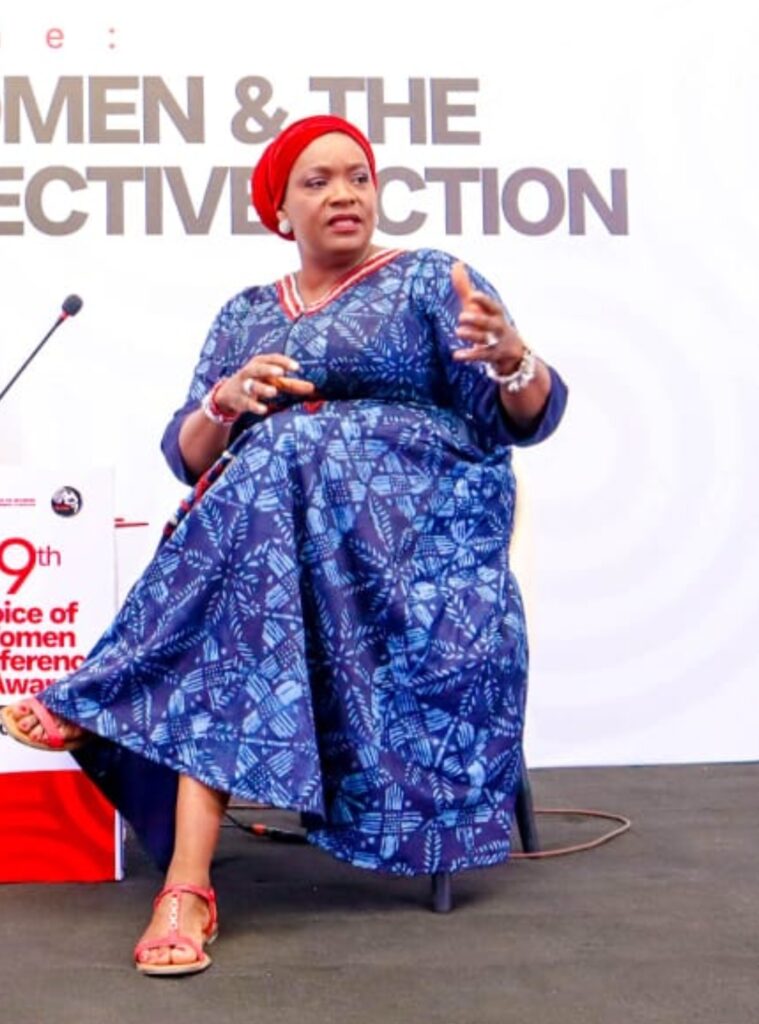
The convener of the VOW conference, Toun Okewale-Sonaiya, described the event as a platform where women’s voices continue to shape Nigeria’s future.
She emphasised the urgency of deepening female political representation by harnessing the power of collective action, noting that the reserved seats bill is critical to Nigeria’s democratic integrity, gender balance, and global standing.
ALSO READ: Nigerian menstrual health advocate bags international award
“It is time we transform this individual voting strength into a unified force. When women support women across all divides, we become the decisive power that can shape governance,” Mrs Okewale-Sonaiya said, calling on the nation’s president and the National Assembly to ensure the actualisation of the bill.
Trailblazers honoured for advancing women, families
At the awards segment, outstanding individuals and organisations were celebrated for their contributions to advancing women’s empowerment and strengthening families across Nigeria. Among the institutional honourees were the Women at Risk International Foundation (WARIF), Flour Mills of Nigeria (FMN), Guinness Nigeria Plc, and the Kaduna State Public Procurement Authority.
Individual recognitions went to Bashir Adeniyi, who received the Lifetime Achievement Award; Meyiwa Vera, honoured for Social Media Innovation; and Dame Esther Uduehi, named woman of the year. A posthumous award was also conferred on the legendary late Olufunmilayo Ransome-Kuti for her enduring legacy of courage and activism.

